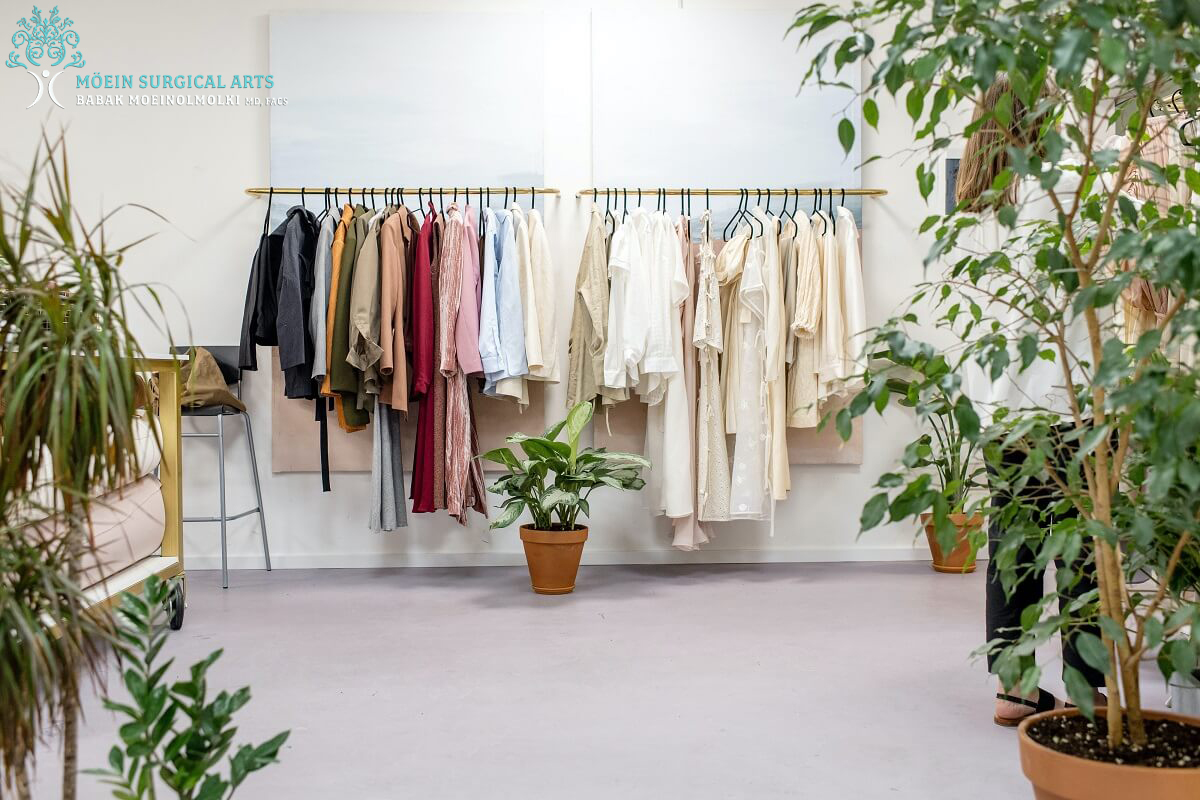
When preparing for a cosmetic procedure, you may be a little nervous about what’s to come after the procedure. For instance, you might ask your cosmetic surgeon questions during the initial consultation, such as: After my surgery:
And the most popular question:
Beyond all those questions is the one query that’s not often thought of. That’s what you should be doing while you’re recovering from cosmetic surgery.
Recovery after a cosmetic surgery involves what you do (and what you fail to do) as your body heals from whatever technique you underwent. Whether you had breast augmentation, a facelift, or rhinoplasty, the steps you take during recovery can mean the difference between an easier time and one that is extended with potential complications.
That’s not to frighten you from having cosmetic surgery. The many procedures available today are safe and effective for use in fighting age, reversing the effects of pregnancy on the body, and repairing superficial irregularities that may cause you distress. As far as safety, the FDA has approved cosmetic procedures for the repair of irregularities and the fight against age. The results you can expect depend on a few factors, and you must keep to realistic expectations. The right procedure can erase the years from your features and make you look amazing, in some cases from head to toe.
Put the steps below into practice during your recovery after cosmetic surgery and you’re sure to have an easier time in the recuperation stage. There are seven things we recommend. This is real-life advice that can help you achieve the results of your procedure with minimal complications and shorter downtime.

While this advice is meant to shorten your recovery after cosmetic surgery and make things easier on you, there is a caveat. You must give yourself enough time to heal. Don’t jump back into your usual routine until you are assured that the treatment site has healed and that you are well enough to go back to work and engage in certain activities like exercise.
Listen to your cosmetic surgeon’s advice. Your surgeon has your health and best interests in mind and will let you know when it’s safe to return to your normal life following cosmetic surgery.
When you have surgery, your procedure is going to involve the cutting of tissue. Your body needs time to repair those areas through the processes of natural biological function. The amount of time you rest, the quality of your rest, and even the environment where you get your rest all matter.
You’ll find yourself taking it easy the most during the time immediately after surgery. Depending on the complexity of the technique involved, you may not feel like getting up and doing much of anything at all for a couple of days. However, your surgeon will encourage you to occasionally get up and move around to get your blood pumping and keep your spirits up.
Getting adequate sleep at night is also important for healing. Nighttime sleep is when your body does its most rejuvenation. Choose a quiet, cool room to sleep in. Try to get seven to nine hours a night for the most benefit.
In addition to adequate rest, focus on the types of foods and the amounts of foods you eat. A healthy diet is crucial during your recovery period. That’s because your body needs the proper vitamins, minerals, and other building blocks of life to repair your body naturally.
Your cosmetic surgeon may give you a healthy eating plan to follow. If not, make sure you choose healthy, whole-wheat grains, lean meats, and lots of fruits and green vegetables. Strive for several small meals throughout the day or at least three primary meals to give yourself adequate nutrition to get back on your feet. A multi-vitamin can add vital nutrients to your diet if you’re not accustomed to getting the nutrients you need from the foods you eat.
Being dehydrated can hinder or slow the healing process. Your immune system can also take a hit when you fail to drink enough water, making you more susceptible to post-surgery complications. It’s best to reach for plain water as opposed to soft drinks. You may be able to get away with those sprinkle-in flavor enhancers, as long as you use them sparingly. Regular water can also be spruced up with fresh lime or lemon juice for a vital infusion of Vitamin C.
Another benefit that comes with drinking your fill of water is that your mood will improve. If you are the type who likes to be out and about to mingle with others, spending time recovering may cause you to feel a tad down. Consume more water and you just might drink yourself happier.
Drinking plenty of water each day can increase your frequency of bathroom breaks. While it can be a pain to get up every few hours to void your bladder, you’ll be doing a good thing for your recovery by standing up and walking, even the short distance to the commode.
Plus, the gentle and slow movements you make along the way will improve your circulation, which your body relies on to heal itself. Your blood carries nutrients to the various areas of your body. Sitting too long can make your circulation slower. Moving around, even if it’s to urinate, is one of the best things you can do, especially in the early stages of the post-surgery healing period.

The last thing you’ll want to do during recovery after cosmetic surgery is sifting through your closet and dressers for comfortable clothes to wear. You will thank yourself post-surgery if you can manage to prepare your wardrobe beforehand. Set out some sweats or shorts and T-shirts, or whatever else you tend to wear when lounging. The key is to choose loose clothing that will allow your circulation to flow freely. If you’ve had breast surgery, you’ll want to pack a few button-up shirts that will be much easier to slip in and out of.
Following your cosmetic surgery, your incisions will need time to heal. The surgeon will wrap the surgical site with gauze or bandages before sending you home. It is up to you to care for the treatment site and change bandages as necessary to promote cleanliness while preventing dangerous infections. You are encouraged to keep bandages, antibacterial soap, and hand gel nearby at all times as you recoup.
A meal preparation session before you go into surgery can save you time, frustration, and hunger pangs later. Activities like shopping and preparing meals can take the energy you may lack as a post-surgical patient in healing. The trick is to prepare meals you can easily reach for whenever you’re hungry. Good ideas include stir-fry, chili, and other meals you can cook in bulk. You can then portion the meals out into plastic containers with lids before sticking them in the freezer or fridge. When you’re hungry, you can simply reach for a meal and heat it as desired, no cooking or extra shopping is required.
You’ll want to give your home a good tidying before you go in for surgery. Not only will this be better for your mental health as you’re recovering, but it’ll also keep you from tripping over anything that could be in the way in your diminished state.
Pick up area rugs and tape down extension cords to keep from tripping over anything. Even a slight spill could tear a stitch or otherwise mar your surgeon’s handiwork. Scrubbing your home will also keep your environment sanitary, which helps keep infections at bay.
Organize your fridge and pantry, but also the area where you’ll be spending most of your time, such as in the recliner in front of the TV. Have the remote control handy and get one of those extension grabbers, a neck pillow, reusable straws, and long USB cords, which can all be game-changers.

The length of time your body takes to recover from surgery will vary depending on a variety of factors, including the type of surgery.
Eyelid surgery takes around ten days for the bruising and swelling to subside. You’ll be back to work in a week and can resume your normal activities within four weeks, though it can take between three and six months to see the final results.
For abdominoplasty (the tummy tuck), you’ll have surgical drains placed at the treatment site for around a week, at which time they will be removed. Those drains help to prevent the accumulation of fluid in the days after surgery.
You’ll be back to work after a tummy tuck and can resume your normal activities in around four weeks. You may be asked to wear a compression garment for up to eight weeks post-operation. Bruising and swelling can take up to three months to subside, though some residual swelling could continue for up to 18 months afterward. The true results of abdominoplasty typically reveal themselves around six months after the initial surgery.
Breast augmentation takes three to five days for you to return to work, though you should refrain from exercising for up to six weeks post-surgery. Bruising and swelling should go down in around 48 hours, though minor swelling could continue for a few more months. Your cosmetic surgeon will advise you to refrain from wearing any underwire bras for up to six weeks after surgery. You should begin to see the final results of breast augmentation in three months. However, it can take up to six months for the ultimate reveal.
The Brazilian butt lift will have you returning to work within 14 days following your procedure. You will be advised by your surgeon to refrain from sitting or lying on your buttocks directly for up to two weeks. Donut pillows work wonders during BBL recovery. You can resume normal activities within eight weeks though you may not see the final results for up to six months.
Liposuction can be performed on its own but is typically performed as part of a larger surgery. The small incisions used to suck fat out of targeted areas can take a few days to heal. You will return to work in between one to three days and can resume normal activity one week post-op. A compression garment could be advised for up to six weeks. You’ll start seeing results in a few months, but the true results could take up to a year to fully manifest.
Your recovery period may vary.
While the above does in no way constitute medical advice, there is a way you can get a professional opinion and recommendation for cosmetic surgery. You can schedule a consultation with Dr. Babak Moein. Cosmetic surgery can help when you look in the mirror and don’t quite like what you see, or you have a part of you that causes distress. The right cosmetic procedure can repair those irregularities to make you look and feel better.
Popular procedures like the tummy tuck, liposuction, breast augmentation, butt lift, and the arm lift and thigh lift can transform your looks one session at a time. Getting started is easy. Schedule today by calling (310)455-8020.